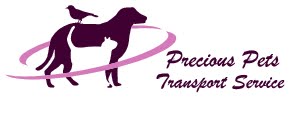Summer is rushing into view. After years of working in the moving industry we have learned to take the "down" time to upgrade and prepare for busy times. We're working hard to upgrade communication systems, vehicles, equipment and quality people to help us handle the summer rush.
As a Professional Pet Relocation Service we want to help you understand what you need to know to make an informed decision when its time to move your pets. In the grand scheme of things ground pet relocation services are a relatively new industry. Because it is such a new industry there are very few regulations on the books to regulate companies. So you as the client need to do your homework and ask questions. If you've not done this before what questions you need to ask.
Lets get started, the government organization that regulates this industry is the USDA. There are specific guidelines that are in print that every transporter is to adhere to. Every professional company gets a USDA number. If you contact the USDA they will be able to tell you if the company is licensed, this can be checked online. If you write to the USDA they will give you the company track record, but this takes time, so get started early if you want more information about the company.
The next things to look at is their insurance. Many companies will say they are "Insured". Yep, their vehicles are. That does nothing for your pets. There are specific insurances you will need to see if they have, one of course is vehicle, two business liability and three, a care and custody policy. If you doubt or question whether they really do have the proper insurance, ask for a certificate of insurance. Any professional company will have no problem providing one.
If a transporter does not have a care and custody policy chances are your pet is not covered. Cargo polices do not cover pets.
Next, what type of crates are used. Plastic crates are used on airlines because they are secure and don't collapse. These should be used. Wire crates run the risk of collapsing in the event of an accident. The other issue with wire crates is if a pet get sick, (delly belly), all needs to stay confined to that one crate. Cleaning the plastic crates is much easier. What is used to clean the crates and when are they cleaned.
Crates should be cleaned after EACH and EVERY PET.
Do pets have access to water 24/7. Are they fed? I almost fell out one day when a client asked if we fed the pets while we moved them. I thought she was joking, She informed me there were companies that did not feed the pets. I was just horrified hearing this.
Are the pets walked, how many times a day. Pets given a schedule will settle into the ride knowing their basic needs will be met. Food, water, potty, and comfort.
A professional company will also plan for the worse. What happens in the event of a breakdown, weather, or emergency. Is the vehicle equipped with climate control in the event of an engine failure. Do the people in charge know what steps to take in the event of an emergency. Traveling 3000 miles a week, at some point things happen. This country has very hostile conditions, in very remote regions, with little to no services. This job can be fun until one has to deal with an emergency and is not prepared properly.
One other major question, what happens at night. Some companies drive 24/7. That constant rumble of the engine can be a bit daunting after awhile. We've learned that stopping at night gives the pets a chance to totally relax. They don't mind the ride especially when they know it will stop at some point.
When the ride does stop for the day, what are the sleeping arrangements? Most drivers have a bunk built into their vehicle. If you don't see a bunk, bedding or pillow of some type chances are they are going into a motel and leaving the pets in the vehicle alone.
Private rides are different, most of the time all go into the motel. Shared rides however usually have anywhere from five to at least a dozen pets, there is no way a transporter is going to unload that many pets into a motel every night.
To summarize, your looking for:
1. Proper insurance
2. A physical address for the company your planning to use. NOT a PO Box.
3. Climate controlled vehicle.
4. Sleeping arrangements.
5. Basic needs for the pet. How will they be met?
6. Emergency Procedures.
7. Can you find adequate information about the company. Referrals, references, social networks. The web has a vast supply of information on any company that has been in business for any length of time.
Hope this helps.
https://www.preciouspetstransport.com

No comments:
Post a Comment